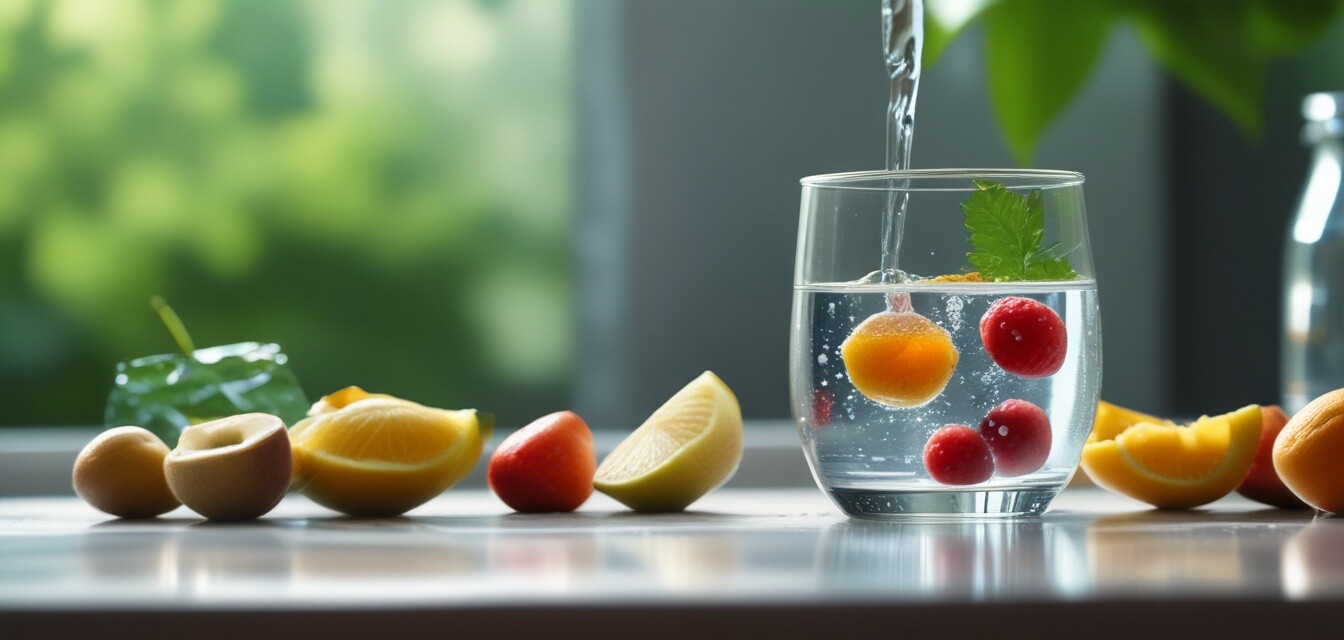
How to maintain hydration while taking prenatal vitamins
Key Takeaways
- Staying hydrated is essential for overall health during pregnancy.
- Hydration aids the absorption of prenatal vitamins.
- Incorporating water-rich foods can help boost hydration.
- Aim for at least 8-10 cups of fluids daily.
- Listen to your body’s hydration needs, especially during hot weather.
Maintaining proper hydration is crucial for all, but it becomes even more vital during pregnancy. Expecting mothers need to ensure they are not only getting the essential nutrients from prenatal vitamins but also staying well-hydrated. In this article, we explore the relationship between hydration and prenatal vitamin absorption, along with practical tips for keeping hydrated throughout your pregnancy.
The importance of hydration during pregnancy
Hydration plays a pivotal role in maintaining overall health during pregnancy. Not only does adequate fluid intake support blood circulation, but it is also essential for fetal development, amniotic fluid balance, and nutrient absorption. Pregnant women typically require more fluids to support their changing bodies and growing babies.
How hydration impacts vitamin absorption
Hydration affects the body's capacity to absorb vitamins and minerals. When the body is dehydrated, it can lead to decreased circulation, affecting how effectively nutrients are distributed to the fetus. Staying hydrated ensures that the necessary vitamins, including those found in DHA prenatal supplements, can be efficiently utilized by the body.
Tips for maintaining hydration
There are many simple strategies to help ensure you are getting enough hydration during pregnancy. Below are some effective tips:
- Drink regularly: Aim for 8-10 cups of water daily. Sip on water throughout the day rather than consuming large amounts all at once.
- Add flavor: If plain water is unappealing, try adding slices of lemon, cucumber, or berries to enhance the flavor.
- Incorporate water-rich foods: Eating fruits and vegetables with high water content can significantly contribute to your hydration needs. Some great options include:
| Food | Water Content (%) |
|---|---|
| Watermelon | 92% |
| Cucumber | 95% |
| Strawberries | 91% |
| Spinach | 91% |
| Broccoli | 89% |
Signs of dehydration
It's important to recognize the signs of dehydration, especially during your pregnancy. Some symptoms include:
- Dark yellow urine
- Dry mouth and lips
- Dizziness or light-headedness
- Fatigue or weakness
- Headaches
If you experience these signs, increase your fluid intake and consult with your healthcare provider.
Helpful tips for beginners
- Keep a refillable water bottle with you to remind yourself to drink.
- Set reminders on your phone if you find it hard to remember to hydrate.
- Track your intake using a hydration app to make sure you're getting enough fluids.
- Enjoy herbal teas or low-sugar drinks for variety.
Conclusion
Hydration is a critical aspect of maintaining health during pregnancy. It facilitates the absorption of vital nutrients from prenatal vitamins, ensuring both you and your baby are getting what you need. By incorporating various strategies for staying hydrated, including drinking water, enjoying water-rich foods, and recognizing the signs of dehydration, you can support a healthy pregnancy journey. For additional tips on prenatal vitamins, be sure to check out our section on Healthy Pregnancy Tips.
Pros
- Maintaining hydration can improve overall well-being.
- Helps in the absorption of essential nutrients from prenatal vitamins.
- Promotes healthy amniotic fluid levels.
Cons
- Some women may find it challenging to drink enough fluids.
- Excessive hydration can lead to increased bathroom trips.
